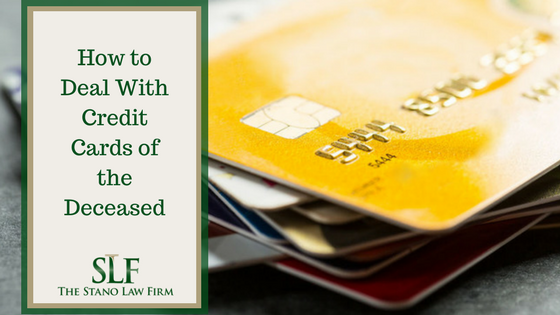When a loved one passes away, there are several issues that need to be handled, including making funeral arrangements and dealing with their estate. However, there is one issue that many people fail to consider after the death of a family member: What happens to their credit cards?
Debt is a very complicated issue, and it becomes even more complex when the person who holds the debt has died. If you want to protect your financial future, you need to learn more about how to deal with the credit cards of the deceased, and how this issue may impact you and your family.
Who Gets the Debt?
After a loved one has died, one of the main questions people have is who will be saddled with the debt they left behind. Unfortunately, there is no straightforward answer on this question, as it can vary from case to case.
If your loved one has died still owing credit card debt, then the credit card company can take the money that they are owed from your family member’s estate. However, if the value of estate isn’t enough to cover the credit card debt, the card company is not legally allowed to force family members to pay for the debt. Instead, they will have to take the loss.
Who’s on the Card?
While credit card companies usually cannot require family members to pay the debt owed by their deceased loved one, this can change depending on several factors. For instance, anyone who cosigned the credit card contract can be held responsible for the remaining debt.
If your parent co-signed a credit card with you when you were young and the card was still active when they died, then you will be responsible for the debt if your name is on the card. Anyone whose named is listed on the credit card contract is liable for the debt on the card.
Steps to Take
If you want to correctly handle credit cards of the deceased, there are a few easy steps that you can take.
First, you need to make sure that you are organized. Gather any necessary information, including financial statements and any passwords you may need to access your loved one’s accounts.
Second, you should prevent the card of the deceased from being used. It is illegal to use someone’s credit card after they’ve died, even if you are an authorized user.
Third, contact the credit card company immediately and have them deactivate the account. This will help you avoid finance and interest charges. Even if it was a joint card and one of the users is alive, you still need to notify the credit card company. You will probably need to provide the credit card company a death certificate in order to close out the account.
Legal Help for Credit Cards of the Deceased
Dealing with the death of a loved one is extremely complicated, particularly when there are legal issues involved like dealing with the credit cards of the deceased. Make sure you’re prepared to handle your family member’s affairs by working with the team at Stano Law.
Stano Law is proud to offer estate planning services to clients throughout Ohio. Contact us right way to learn more about how we can help you.








Leave A Comment